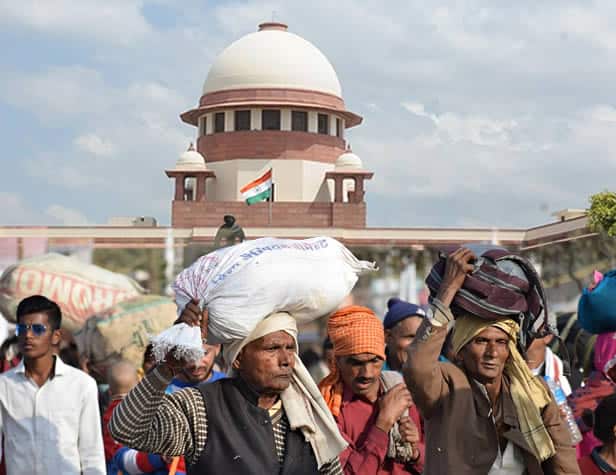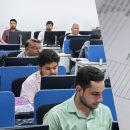Supreme Court says it can’t monitor migrants on the move

Last updated on February 13th, 2023 at 04:32 pm
In refusing to entertain a plea asking for government help for those migrants who are striking out on their own to reach their homes, the Supreme Court once again failed to weigh in on the issue.
A three-judge bench headed by Justice L Nageswara Rao and comprising Justice S K Kaul and Justice B R Gavai refused to entertain a plea that sought a direction to the Centre to order respective district magistrates to identity and help stranded migrants who are on the roads trying to walk home. Heard over video conferencing, the plea filed by advocate Alakh Alok Srivastava asked that the government must provide them food and accommodation and ensure free transportation services for the rest of their journey home.
This comes after the death of 16 migrants in Aurangabad; the men were returning home to Madhya Pradesh and were sleeping on the train tracks when they were mowed down by a passing goods train.
The apex court said that it is impossible for courts to monitor or in any way control the movement of migrants between the states. For example, almost two million migrants have registered to go back home from Gujarat alone and only a fraction of them have managed to find space in the government-operated ‘Shramik trains’. “How can we stop it?” the court asked referring to people who decide to strike out on their own amidst the pandemic and said the state governments are responsible for taking the necessary actions.
The Solicitor General Tushar Mehta was asked to weigh in on whether some kind of control was possible with respect to the number of migrants on the road. Speaking on behalf of the government, Mehta said the authorities can only request migrants to stay where they are and wait for official government transportation options. It can’t be enforced through coercion or force which would be counter-productive.
He insisted that the states will provide inter-state transport for all and people must wait for them patiently. Everyone will be able to get home subject to agreements between state governments. But if they choose to walk home instead, nothing can be done about it.
Read: One Nation-One Ration-One India
He wasn’t asked to elaborate on how many of these migrants were forced to embark on these long journeys back home because they had no means to support themselves in the cities during the lockdown. Most of them no longer have jobs and government aid has been slow and erratic in reaching them. Besides they want to be with their families during these fearful times.
The court had earlier disposed of Public Interest Litigation that sought more measures to ensure the welfare of migrant workers during the ongoing pandemic. It had said that the Centre and the states were, in fact, taking adequate steps to take care of their needs. The reality on the ground couldn’t be more different.



